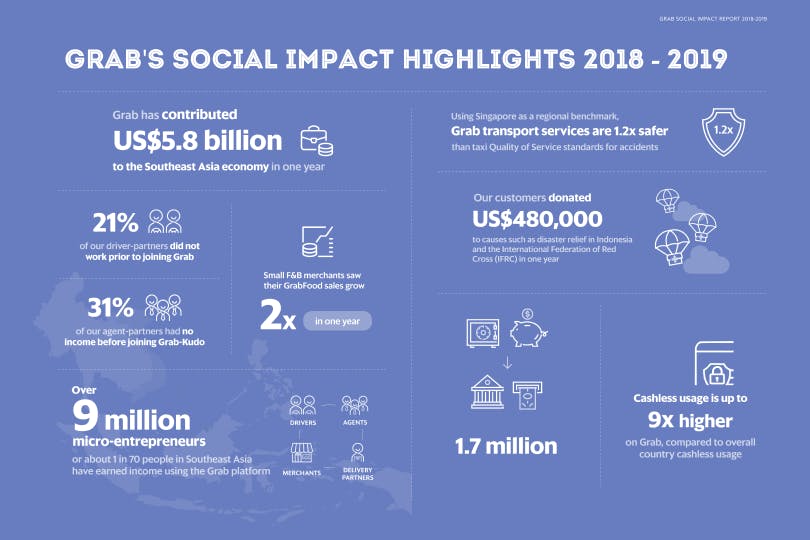«When markets are disrupted, the winners are usually those who can continue to create value. So organizations with scale will remain ahead of the game and so will sharp, agile, tech-oriented newbies. Those in the middle of the pack will likely have a harder time facing this changing landscape.»
Atlee Valentine Pope, CEO of consulting firm Blue Canyon Partners
The modern world faces complete overturn and so does every industry. It’s not a surprise that transportation and logistics are going to invest over 40 billion USD in software services, platforms, and systems development to stay in-step with the times in 2020. Being the integral parts of every business they constitute the backbone of the modern economy. To provide it with the due support transportation industry should accept the new market players, broaden the service range, introduce innovative business models, provide up-to-date transportation and logistics software and match the increasing consumer expectations.
We have already mentioned the main trends which are going to disrupt the industry in the nearest years in our White Paper on Transport Innovations. The most significant ones are digitizing and developing effective software solutions.
Today we want to speak about the companies, which manage to successfully handle the challenges in the public, private and cargo transportation and top the industry in 2020.
Uber
Though Uber has had a doze of critics for unfair employees treatment and aggressive anti regulators practices, the company which started as a ride-sharing service a decade ago is now represented in 785 metropolitan areas worldwide. The number of Uber users has already exceeded 110 million. It now offers not only the service of ride-sharing but meal delivery (Uber Eats), besides, it matches freight shippers with truckers (Uber Freight).
More than that, the company announced Uber Air — a short flights service, and Uber Works, matching the workers and the employees, to be under development.
There have been already developed a number of services, called Uber for X. The advance of sharing economy due to Uber services was so significant, that a new term has appeared to define it — uberisation.
Grab
Started as a company in rented tiny storage in 2012, Grab is now the largest Southeast Asian mobile tech company. It connects millions of consumers with millions of service providers.
Grab is at present addressing the largest challenges people face in the fastest-growing region of the world -inequality, outdated infrastructure, and earnings disparity.
Providing, not only transport services, but food and express delivery ones as well as offering partnerships for food and payment merchants, lending products, and protection services, the company contributes greatly to the economy of the region and the well-being of the citizens.

Multiple earning opportunities are offered to millions of people across the region — from drivers, merchants, agents, delivery partners, to startups.
BlaBlaCar
There is hardly a person, who fails nowadays to know BlaBlaCar service. Being a leading long-distance carpooling platform in the world it unites 80 million drivers and passengers from 22 countries.
The idea of such service occurred to one of the founders 15 years ago. In already 2 years the service was launched. Since that time more than 30 billion kilometers were shared by the community. More than 1.4 billion euros was saved by its members, because people share the costs traveling the same direction.
We have told our readers already about MAAS, the model gaining momentum nowadays. Mobility as a service is a network of coordinated transportation forms, which the riders can combine in the most beneficial and convenient manner at different parts of their journey. No surprise that BlaBlaCar goes for shared road mobility — affordable, convenient and user-friendly. That’s why a BlaBlaBus service has appeared recently.
BlaBlaBus
Though it was a coach service operating in Europe for a number of years it was purchased by BlaBlaCar in 2019 and rebranded. Now the service is already available in 10 countries, and 3 million passengers have used it on 300 destinations.
Undoubtedly, the scaling of the project will go fast and smooth. One of our clients, MeinFernBus, which is now FlixBus , became a leader of European transport services already. We know for sure that detailed project scaling plan and cutting-edge software work miracles.

Scoot
It’s one more company proving that the future of mobility is shared and green. The original shared electric vehicle company set in San Francisco in 2012 has expanded to Barcelona and Santiago. With almost 7 million electric vehicles the company demonstrates its commitment to multimodality and sustainability.
MOIA
One more company popularizing mobility as a service working with cities and public transportation organizations is MOIA. It’s a subsidiary company of the Volkswagen Group, which is though an independent brand.
The company develops and implements diverse services along the mobility value chain for different user groups. MOIA aims to become a leading provider of mobility solutions, a part of everyday traffic in many cities and to help people reduce private transport usage, through a proper transport management software.
In the long run, the company is eager to craft solutions that make cities more beautiful, more livable and safer for everyone through the new vehicle and mobility concepts of the autonomous mobility age.
Via
The company aims to reshape public transit into a fully dynamic network, matching public transportation and private cars. The service facilitates people’s quickest getting from one place to another in the most affordable, and environmentally responsible way. It happens due to the special algorithms used in their software solutions. They develop innovative mobility solutions for on-demand and pre-scheduled transit, powered by the most advanced technology worldwide.
Via operates in 20 countries, cities big and small, and has more than 70 million riders. MaaS allows people to quickly and comfortably reach their destinations with an integrated network of transportation options accessed through a single, digital interface. Besides, Via works with specialized needs patients to deliver a best-in-class service of transportation to them.
Other companies that disrupt the transportation sphere are the ones dealing with freight procurement and distribution management.
We’ll refer to the top 3 aiming to provide the shippers with a one-stop solution for transportation and logistics services transportation. The new, however promising players on this ground are Uber Freight, Convoy and Transfix.
Uber Freight
The number of carriers in the network has recently reached 30000. The service is expanding worldwide, to Europe, the Netherlands, in the first turn.
Convoy
Having started just 3 years ago the company reached a 100% match rate for several key freight markets (Seattle, Portland, Los Angeles, Chicago, New York, and Atlanta) in February. The match rate across the country was 95% compared with just 25% in 2016 when it started.
Transfix
The company was launched in 2013 and received almost 80 million USD in venture capital. The Transfix CEO McElroy believes they will reach 1 billion USD in revenue by 2021.
Conclusion
Drivers and users are likely to sign up and try as many services as possible, but every person will end up using that one, which proves to be the most efficient and simple to use. That’s why Stfalcon believes transportation companies that organize their resources around the key up-to-date trends and metrics will be best positioned for prosperity. As we remember, at present digitizing and software are of vital importance for the purpose.
So the example of any company mentioned above can be the source of ideas and inspiration for new startups and product development to enter the market in 2020.
We often get requests as to the cost of development of the Uber-like products. Stfalcon experts always advise to be careful and reasonable with the solutions, which are developed and ready to help and provide consultancy as to the transport software solutions development to match your needs and your clients’ expectations.
Originally published at Stfalcon.com

